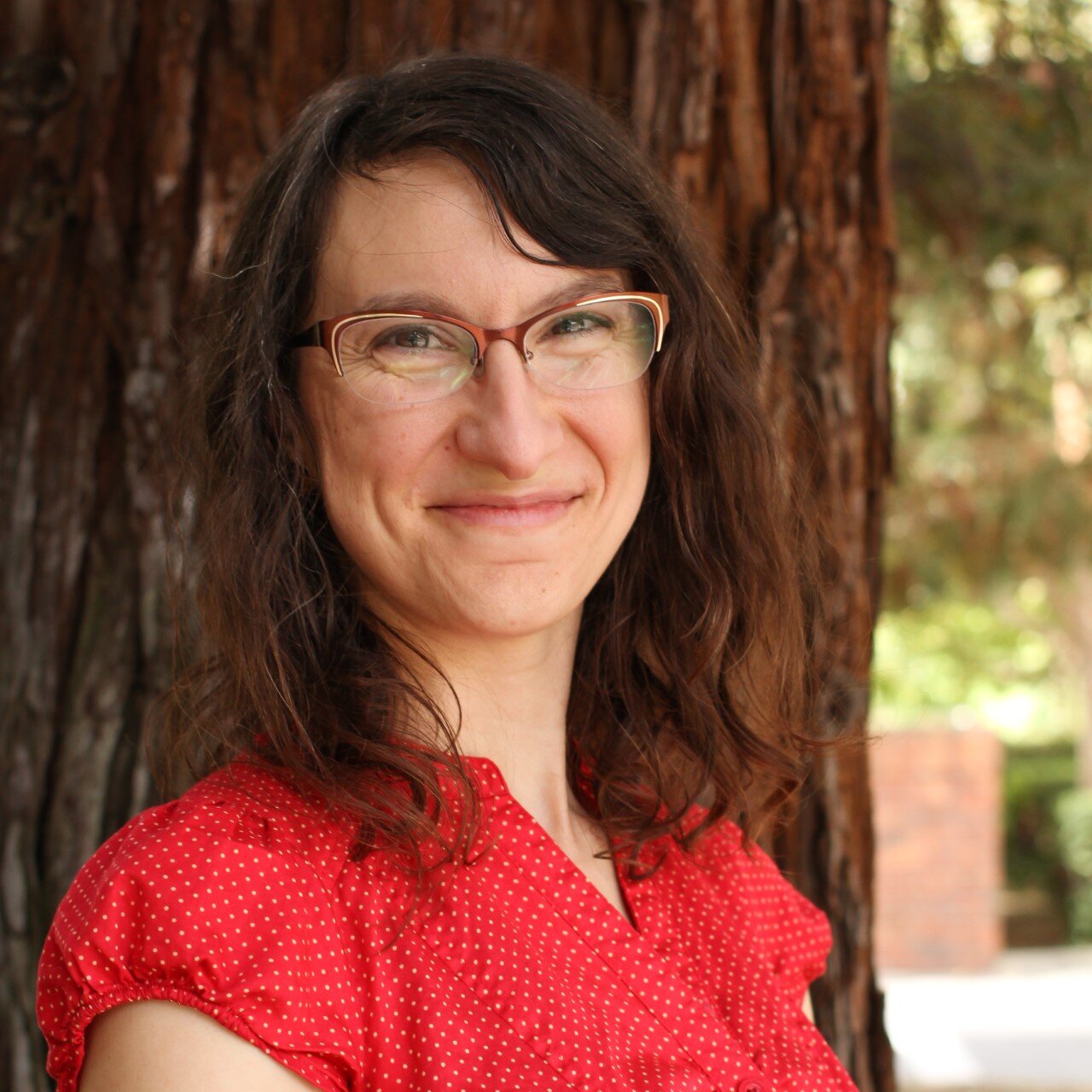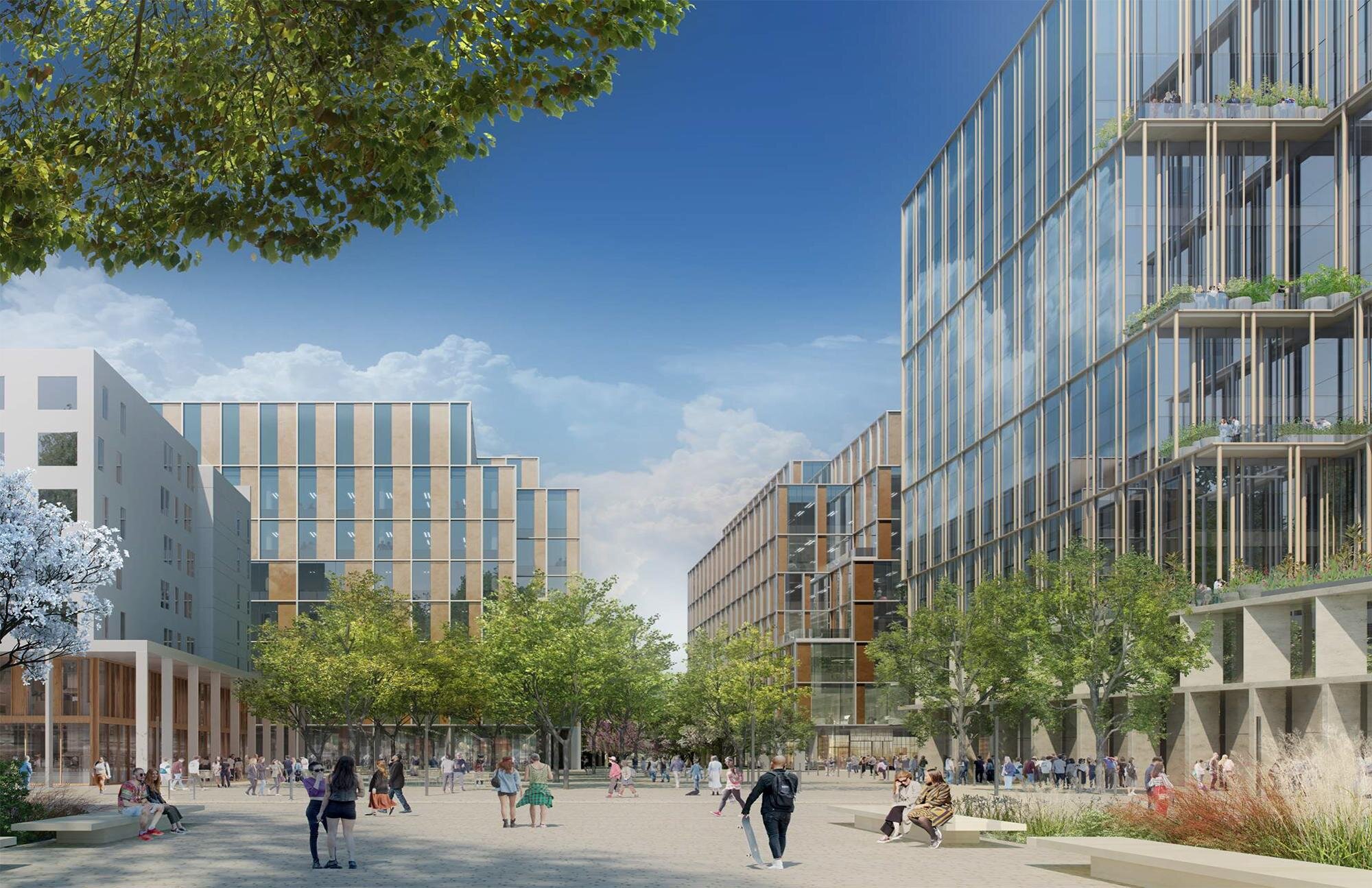Leadership Profile: City climate chief Jennifer Venema envisions neighborhoods for people, not cars
Sacramento (March 26, 2021) Jennifer Venema, the City’s first Climate Change chief, is the fourth woman leading change in the City of Sacramento whom we are highlighting here in our series for Women’s History Month. Read our profiles on Jennifer Donlon-Wyant, Dr. LaTesha Watson and Danielle Foster and watch this space as we continue to feature the amazing group of women changing Sacramento’s approach to policing, transportation, housing, homelessness, climate change and other important areas. We’ll wrap up the month with a Facebook Live roundtable on March 30 featuring the women profiled.
Name: Jennifer Venema
Education: Dual major: BS City and Regional Planning and BA Political Science, Environmental Studies minor, Cal Poly San Luis Obispo
Years in Sacramento: Over six, but I’m a Central Valley native, born and raised in Manteca, CA.
Years in the position: I served as Sustainability Manager for the Department of Public Works for just under five years. In October, I was appointed to serve interim as the first citywide lead for advancing climate action efforts across all City departments.
What do you view your mission as Climate Action Lead (is this still interim?) of the City of Sacramento?
(Yes, I am still serving on an interim basis. Since this is a new position, the Human Resources Department has to study and develop the new classification. Once this process is done, there will be an open recruitment per City policy)
I view my mission statement in this role as ensuring that the City as an entity is equipped to address the climate emergency, and that we are actually advancing and implementing progress in our City operations and communitywide. This means that my role is about providing the leadership and accountability that is necessary to achieve City Council’s goal of carbon neutrality, and to move us forward as an organization.
Over the last year, we’ve had a lot of attention on the need to establish higher levels of accountability and responsibility for climate action, both through the Mayors’ Commission on Climate Change and the City Auditor’s Audit of Green Efforts. In order to respond effectively, the City Council in August directed the City Manager to create this new position. Based on this context, a key part of my role is to provide the ongoing connection to the City Council’s vision and the work of our departments. My job is really about enabling and catalyzing the bigger, transformational climate shifts we need in the City organization and in the community as a whole.
In the last few months, my first focus was to develop a near-term action plan identifying priority climate action efforts for 2021. We presented this plan to City Council on December 8. In February, City Council allocated $4.4 million in one-time funding to advance these initiatives, including creation of new staff positions.
In your mind, what would Sacramento look like in 10 years?
In 10 years, Sacramento would be the place my son is proud to live in and remain as an adult. It would be the place where we’ve succeeded at transitioning to more circular, holistic economies that deliver jobs and improve our neighborhoods – giving people greater options, and the ability to live healthier lives in more beautiful, resilient neighborhoods. Our houses would be powered by renewable energy and would be constructed to withstand the heat and storms and extreme climate events we know are coming.
We want to see neighborhoods that aren’t defined by the automobile, but by people, with enhanced transportation infrastructure and transit, and distributed uses. People should be able to easily access daily groceries, school, and work, without having to rely on expensive and polluting cars.
For me, in 10 years Sacramento would be the City of Trees and Farm to Fork Capital for all people. Local food would not be a luxury, but engrained in our communities and nourishing all families. Sacramento would be the unique and indomitable city for all people, as so many of us believe it can be.
What is the biggest challenge you face in your position?
My biggest challenge in this position is reckoning with the fact that so many of these challenges are unsolvable at the local scale. No one project or big funding victory can solve the challenge of climate change in its entirety. Yet I think so much of my role is about communicating and energizing our local vision, and our recognition of responsibility: even if we can’t solve this challenge, it brings opportunities, and future risks for our neighborhoods. We can best prepare and protect our communities if we are proactive. So the challenge becomes not letting the enormity of climate change distract us from the very important and very real responsibilities we bear as public servants.
A second, but related challenge is that the City’s resources are finite, even when climate change is a global problem. This means we constantly have to weigh tasks and options for the City against the challenge of the whole, and prioritize. So much of addressing climate change comes down to prioritization, and leadership. What do we want to prioritize, and how do we want to leave our communities in light of the risks and changes that are already here?
What is the biggest opportunity.
Related to the challenge of the global scale of climate change: there’s never enough time in the day to address all the City faces related climate change. It’s beyond the scope of one position, or even one agency. This is also the biggest potential catalyst: I think climate change is unprecedented in forcing us to face our limitations, and so I think this moves us to accept that we can only move forward if we do this collaboratively, together across the community. Our opportunity is really to re-envision how we do business, and to do this in a manner that is truly equitable and delivers outcomes for and with the community, business, residents, and all our partners. For me, this is a big take-away from so much of the direction and leadership of our Mayor and City Council.
Describe a memorable experience or person that had an effect on where you are today?
I first caught the bug of enthusiasm at all the potential in local government when I was working as a consultant during the time of the American Recovery and Reinvestment Act of 2009. This massive stimulus bill allocated funding that governments received by-right via the Energy Efficiency and Conservation Block Grant (EECBG). Agencies then had to use funding for energy-saving and sustainability projects. I worked as a grant administrator for several small Californian cities, tracking and reporting on their expenditures and project milestones to the federal government. This was the first time I worked in local government implementation. I was so energized and amazed by the work of these cities.
Once, I remember one of the local agency staff members telling me about the workforce program she implementing with the grant. Her agency was using grant dollars for a youth workforce program, to train at-risk youth for energy efficiency and conservation certifications. She was describing how the grant allowed her to purchase boots and other basic supplies, removing barriers for youth to participate in the program. Her vision and passion was so palpable, as was the significance of this endeavor. Although my entire EECBG experience was really pivotal for me, this particular program example was one of the most memorable times when the work of local agencies started to become more real for me.
I was hooked by the potential for implementation and by the direct impact that local agencies could have. I am very grateful for those experiences and the professional opportunities I’ve had in climate practice in the local government.




